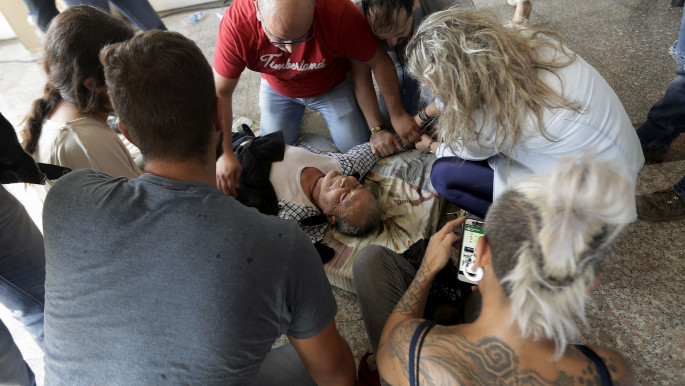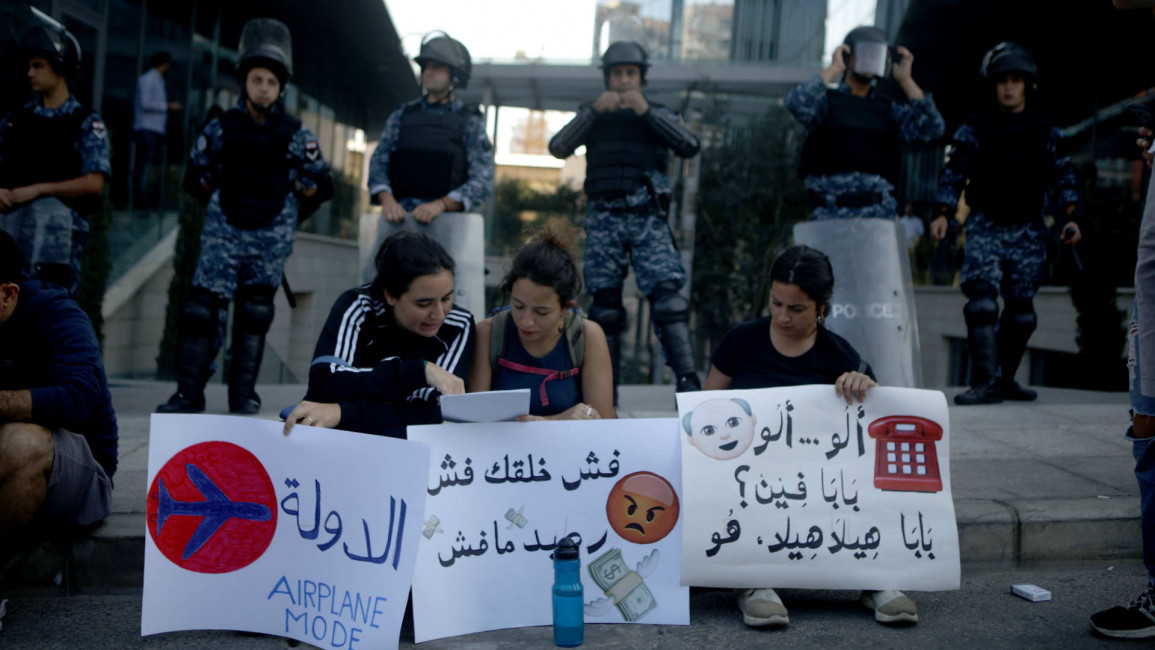Lebanon's roadblocks forced apart as protesters focus on telecoms
The forced re-opening of the roads prompted protesters to change their tactics, with many rallying and chanting in front of the central bank and state telecoms company in Beirut.
In most places where roads were reopened, protesters withdrew peacefully as the troops moved in.
But in Beirut's northern suburb of Zouk Mosbeh, where demonstrators burned tyres and clashes erupted as they refused to move off the main highway linking Beirut with northern Lebanon.
In-depth: Lebanon scrabbles to avert imminent economic collapse
The army detained dozens protesters involved in the scuffles, one of whom fainted and was rushed away in an ambulance. The Lebanese Red Cross later said the elderly man was in stable condition.
Road blocks have been a key strategy of Lebanon's protesters, who used them to major effect for more than two weeks, shutting down the country’s key thoroughfares between Beirut and the rest of the country.
 |
|
| An elderly man who collapsed when road blocks were forcibly reomved is reportedly in a stable condition [Getty] |
Despite the dwindling highway protests, hundreds gathered outside banks across the country, as well as the central bank in Beirut and the headquarters of the country’s two mobile data companies MTC Touch and Alfa.
Protesters have been campaigning against a proposed privatisation of telecoms in Lebanon, as part of Prime Minister Saad Hariri’s proposed reforms in response to the mass anti-government demonstrations.
However, a small victory was won on Tuesday after phone companies reversed a decision to charge customers in dollars, which significantly inflated the prices.
The movement also blames the central bank for Lebanon’s economic crisis, which its reviled chief has warned is imminent unless an immediate solution is found.
Banks had been shut for two weeks before they were reopened on Friday, which in conjunction with a dollar shortage, caused economic shutdown.
Twitter Post
|
Agencies contributed to this report.
Follow us on Twitter and Instagram to stay connected



